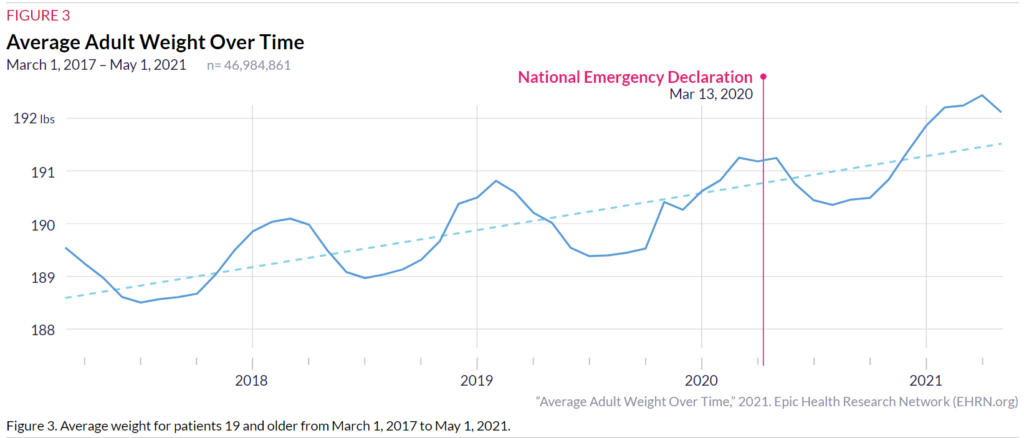A new study out earlier this month shows a strong correlation between high body mass index (BMI) and risk of pregnancy complications.
According to an Epic Research analysis of more than 900,000 pregnancies between Jan. 1, 2015, and June 1, 2021, women with a BMI of 40 or greater carried 120 percent more risk of cesarean section and a 45 percent increase in risk of preterm delivery compared to patients at a healthy BMI between 18.5 and 24.9.
“The takeaway message is obesity is a risk factor of pregnancy and puts patients at higher risk,” said Dr. Dave Little, the lead clinician of the study, who emphasized the increased danger presented to both mother and baby by excess weight. According to Little’s analysis of the data, drawn from U.S. hospitals and completed as a dual-team study with half a dozen researchers, women with a high BMI of 40 or more had a 17 percent decrease in placental abruptions but also saw a 131 percent increase in pulmonary embolisms and a 121 percent increase in sepsis rates.
“Compared to patients with a healthy BMI (18.5-24.9),” the researchers added, “patients with a BMI of 40 or greater have more than 10 times (1,012 percent increase) the rate of hypertension and a 258 percent increase in the rate of pregnancy-associated hypertension.”
The risks of emergency room visits are also far higher for women with a BMI of 40 or more, who saw a 103 percent increase in emergency room visits within six weeks of being discharged from the hospital.
Little cautioned that while obesity presents a major risk of complications, the results do not mean women should lose weight while pregnant.
“We don’t want to see weight loss during pregnancy,” Little told The Federalist, adding mothers should still pay close attention to their weight. “The healthy weight gain during pregnancy is right around 25 pounds.”
The research underscores the urgency with which Americans need to address the epidemic of obesity at the root of nearly every major health problem plaguing the nation, from diabetes to COVID-19.
According to the latest data from the Centers for Disease Control and Prevention (CDC), more than 42 percent of American adults aged 20 and older were considered medically obese with a BMI of 30 or higher. Considering the data predates the pandemic, where Americans continued to put on weight, according to another analysis from Epic Research charted below, today’s prevalence of obesity is likely higher than three years ago.
Birth rates, meanwhile, are on the decline, making healthy pregnancies even more important. According to the CDC in September, the American birth rate fell for the sixth consecutive year in 2020 by 4 percent.










